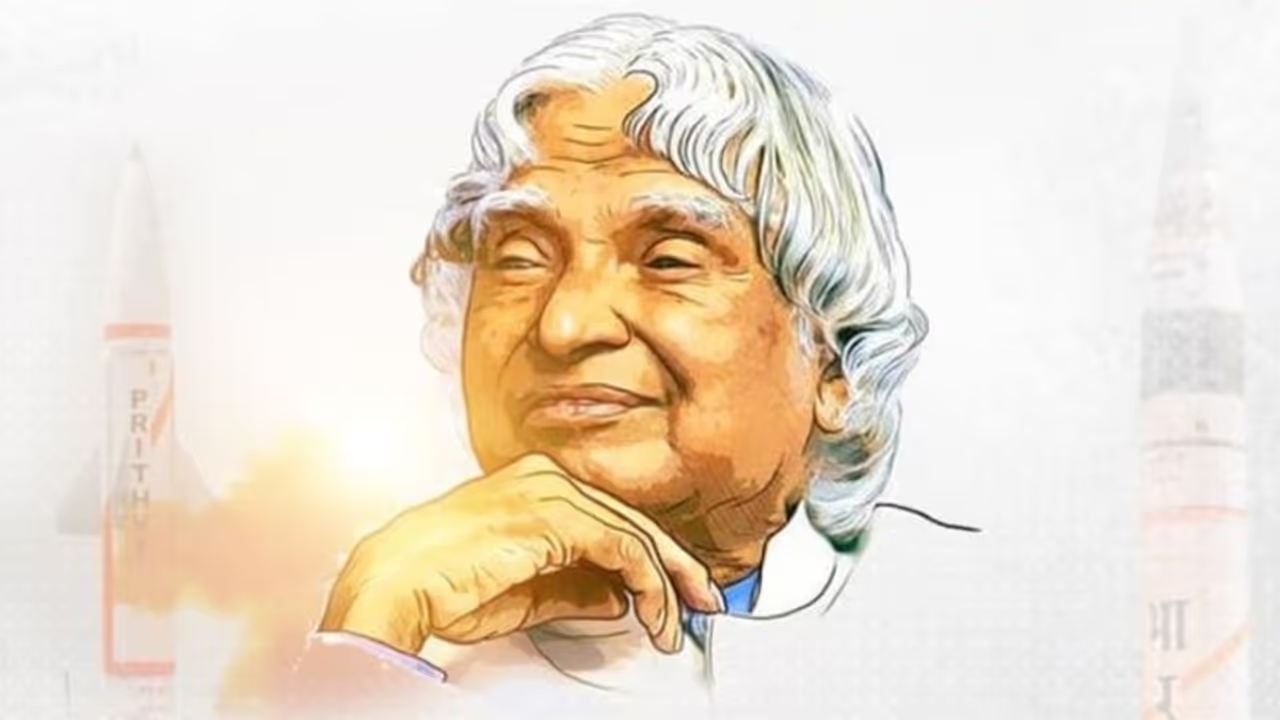Dr. Kalam's dedication and leadership in various scientific organizations, such as ISRO and DRDO, played a pivotal role in India's space and defense capabilities.
APJ Abdul Kalam, full name Avul Pakir Jainulabdeen Abdul Kalam, was an eminent Indian scientist, aerospace engineer, and politician who served as the 11th President of India from 2002 to 2007. He was born on October 15, 1931, in Rameswaram, Tamil Nadu, India, and passed away on July 27, 2015. Kalam is often referred to as the "Missile Man of India" for his contributions to the development of ballistic missile technology in the country. He played a crucial role in the development of India's first indigenous satellite launch vehicle (SLV-III) and various military missiles.

Here are some interesting facts about Dr A.P.J. Abdul Kalam:
1. Before becoming the President of India, Dr Kalam served as the Chief Scientific Adviser to the Prime Minister and the Secretary of the Defence Research and Development Organisation (DRDO). He was also associated with the Indian Space Research Organisation (ISRO) and contributed to several space-related projects.
2. Dr Kalam oversaw the development of ISRO's launch vehicle programmes, especially the PSLV configuration.
3. Through the networking of numerous universities, he was in charge of developing and putting the AGNI and PRITHVI Missiles into service as well as developing indigenous capabilities in key technologies.
4. From July 1992 to December 1999, Dr Kalam served as the Department of Defence Research & Development's Scientific Adviser to the Secretary and Minister of Defence. In collaboration with the Department of Atomic Energy, he handled the weaponization of strategic missile systems and the Pokhran-II nuclear tests during this time, turning India into a nuclear weapon State. He also advanced numerous development tasks and mission projects, such as the Light Combat Aircraft, to promote self-reliance in defence systems.
5. From November 1999 until November 2001, Dr. Kalam held the position of Cabinet Minister and was the Government of India's Principal Scientific Advisor. He was in charge of developing policies, plans, and missions for a variety of development applications.
6. In addition, Dr. Kalam oversaw India Millennium Mission 2020 and served as the ex-officio chairman of the Scientific Advisory Committee to the Cabinet (SAC-C).
7. Dr. Kalam began his academic career in November 2001 at Anna University in Chennai as Professor, Technology & Societal Transformation, where he was responsible for both teaching and conducting research. Above all, he made it his job to inspire young people for national advancement by interacting with high school students all around the nation.
8. Wings of Fire, India 2020: A Vision for the New Millennium, My Journey, and Ignited Minds: Unleashing the Power Within India are four of Dr. Kalam's publications that have become well-known both in India and among Indian citizens living abroad. Many Indian languages have had these novels translated into them.
9. Dr. Kalam was one of India's most eminent scientists and has the distinction of being awarded honorary doctorates by 30 universities and institutions.
10. He received the prestigious civilian awards Padma Bhushan (1981), Padma Vibhushan (1990), and the highest civilian honour Bharat Ratna (1997).
Beyond his scientific achievements, Dr. Kalam was a beloved figure known for his inspirational speeches and writings, motivating people, especially the youth, to dream big and work towards achieving their goals. His down-to-earth nature and approachability earned him the title of the "People's President" during his tenure as the 11th President of India from 2002 to 2007.
